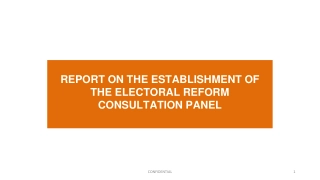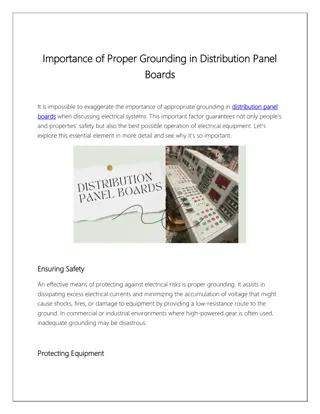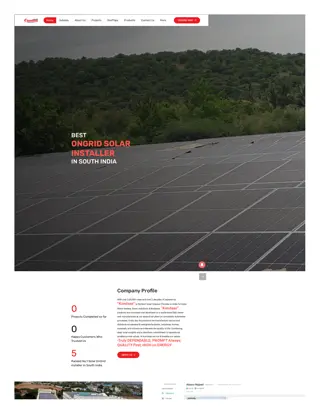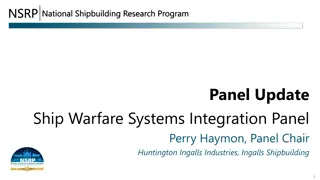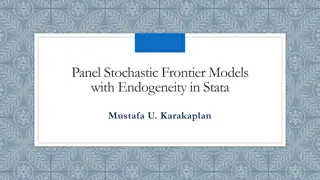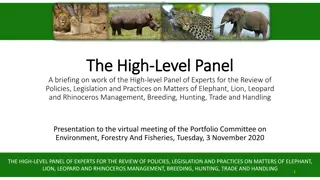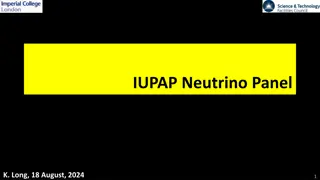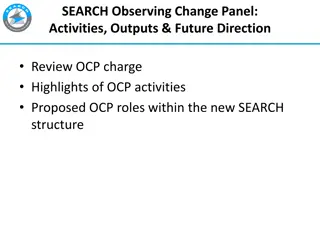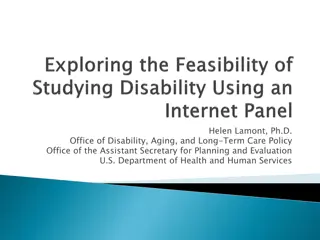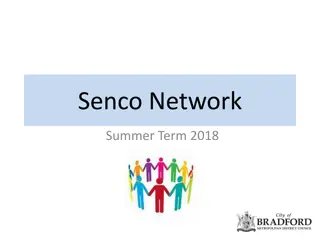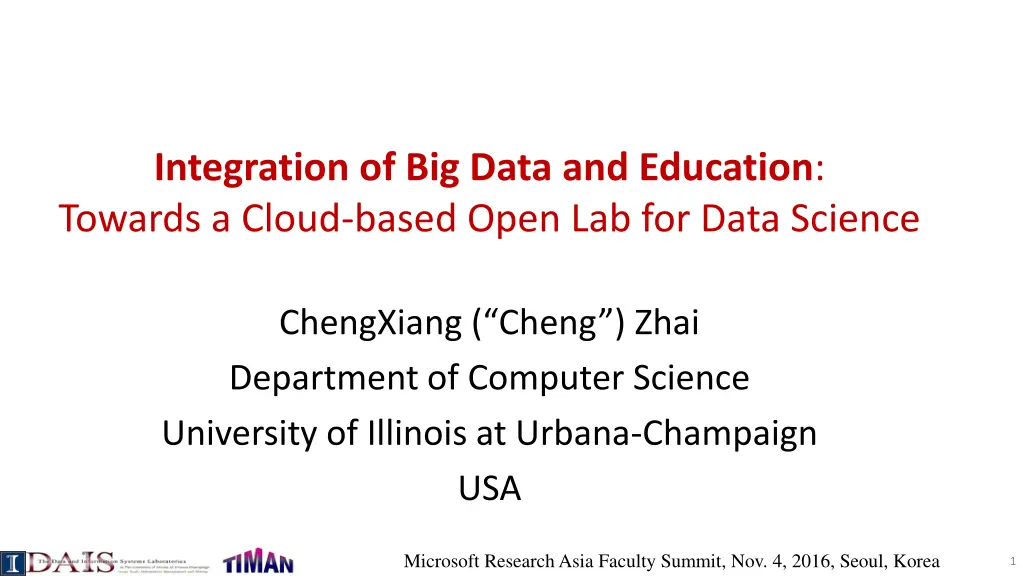
Innovative Approaches to Big Data Integration in Education
Explore the integration of big data and education through a cloud-based open lab, focusing on scalability, quality improvement, and the application of big data technology in educational settings. Discover how industry data sets can be utilized for student learning and research, while maintaining privacy and reproducibility of research. Dive into self-sustaining data set annotations and open challenges, bridging the gap between education, research, and applications in a cohesive manner.
Download Presentation

Please find below an Image/Link to download the presentation.
The content on the website is provided AS IS for your information and personal use only. It may not be sold, licensed, or shared on other websites without obtaining consent from the author. If you encounter any issues during the download, it is possible that the publisher has removed the file from their server.
You are allowed to download the files provided on this website for personal or commercial use, subject to the condition that they are used lawfully. All files are the property of their respective owners.
The content on the website is provided AS IS for your information and personal use only. It may not be sold, licensed, or shared on other websites without obtaining consent from the author.
E N D
Presentation Transcript
Integration of Big Data and Education: Towards a Cloud-based Open Lab for Data Science ChengXiang ( Cheng ) Zhai Department of Computer Science University of Illinois at Urbana-Champaign USA Microsoft Research Asia Faculty Summit, Nov. 4, 2016, Seoul, Korea 1
Integration of Big Data and Education Educate Intelligent MOOC Platform Applied to? Scalability & Quality Improve Research & Develop MOOC Log Education Big Data Big Data Technology 2
A Cloud-based OpenLab for Data Science (CLaDS) Log Data Leaderboard #1 Team1 0.81 #2 Team 2 0.75 Leaderboard #1 Team1 0.5 #2 Team 2 0.3 App Data N App Data 1 Big Data Tool 2 Big Data Tool 1 Big Data Tool 1 Log Big Data Education System 3
Unification of education, research, and applications! 4. Industry data sets not released to students & researchers Privacy-preserving Big Data education & research 3. Well-archived interaction history Reproducibility of research 2. Continuous creation of new data sets for open exploration and research Remove gap between education & research 1. Students working on industry data sets/problems and contributing applications Remove gap between education & applications 4
Self-Sustaining Data Set Annotations & Open Challenge Annotations Auto Grader Annotations ... Open Challenge Competition Assignment Annotation Assignment Raw Data Set ... ... Leaderboard #1 Team1 0.81 #2 Team 2 0.75 Annotations Test Collection 5
Preliminary Work: Search Engine Competition (Fall 2016) Microsoft Academic Search Data Sets Academic Search Leaderboard MeTA search engine Competition Task Grader #1 Team1 0.5 #2 Team 2 0.3 https://competitions.codalab.org/competitions/14411?secret_key=c395eae0-ae7c-42d7-bed3-83d603c83ad3 6
Education Research A top-performing student s assignment/research notes 1.BM25, start with default and by adjusting value. Manually tuning is really inefficient. 2.Programmatic tune, wrote a function to programmatic adjusting k1, b, k3 . 3.Testing other ranking methods [in MeTA], all of them produce a lower MAP score than BM25. 4.With tuned value of BM25, Start to implement query expansion function. . 5.Implementation of MPtf2ln ranking function . 6. Pseudo feed back, since we have the best ranking for BM25 and MPtf2ln, Can we combine the ranking output of these two functions? 7. New Ranking merge this two ranking function s output, . 8. With above methods, I received MAP 0.6962 on the Phase 1 Validation Leaderboard, by far the highest score on the leader board. 7
Next Step: Compete with Microsoft Academic Search Engine! Build an Experimental Academic Search Engine for A/B Test Results of student systems: MeTA-based Results of Microsoft Academic Search Engine: Academic Search API Students = Users of experimental search engine application IF (Student system > Microsoft Academic Search) Improvement of Microsoft Academic Search! Immediate 8
Summary Vision: Cloud-based Open Lab for Data Science (CLaDS) Essential for data science education & research Integration of education, research, and applications Sustainable open infrastructure beneficial to everyone Industry shares cost for highly relevant data set annotations, on target workforce training, and directly useful technology Students receive free/low-cost training Researchers benefit from improving productivity and reproducible results Preliminary results encouraging, but more can be done! Fully exploit resources such as big scholarly data sets (Open Academic Society) More investment/work on general infrastructure 9
Education Automation & Revolution? Big Data and IT enable education automation and revolution toward more affordable high-quality education IT enables one teacher to teach many more students than before (efficiency) Big Data technology would enable automated TA/instructor (scalability) Intelligent MOOC would improve quality of education at low cost Implications: Many traditional boundaries will likely disappear! No strict distinction between a teacher and a student (everyone learns from each other) No strict distinction between grade levels or age groups (learn at your own pace) No inherent boundaries between different courses (due to high modularization) No boundaries of subject areas (due to high modularization) No boundaries of institutions (MOOCs unify all institutions!) 10
Acknowledgments Grants Intel Big Data Education pilot grant (John Somoza) Microsoft Azure for Education grant (Randy Guthrie, David Giard) Infrastructure Microsoft Azure, CodaLab (Evelyne Viegas), and Academic Search API (Kuansan Wang) UIUC MeTA toolkit (Chase Geigle, Sean Massung), and CS410 assignment (Ismini Lourentzou) Coursera Collaboration Univ. of Delaware (Hui Fang) Chinese Academy of Sciences (Xueqi Cheng) 11
Thank You! Questions/Comments? 12

